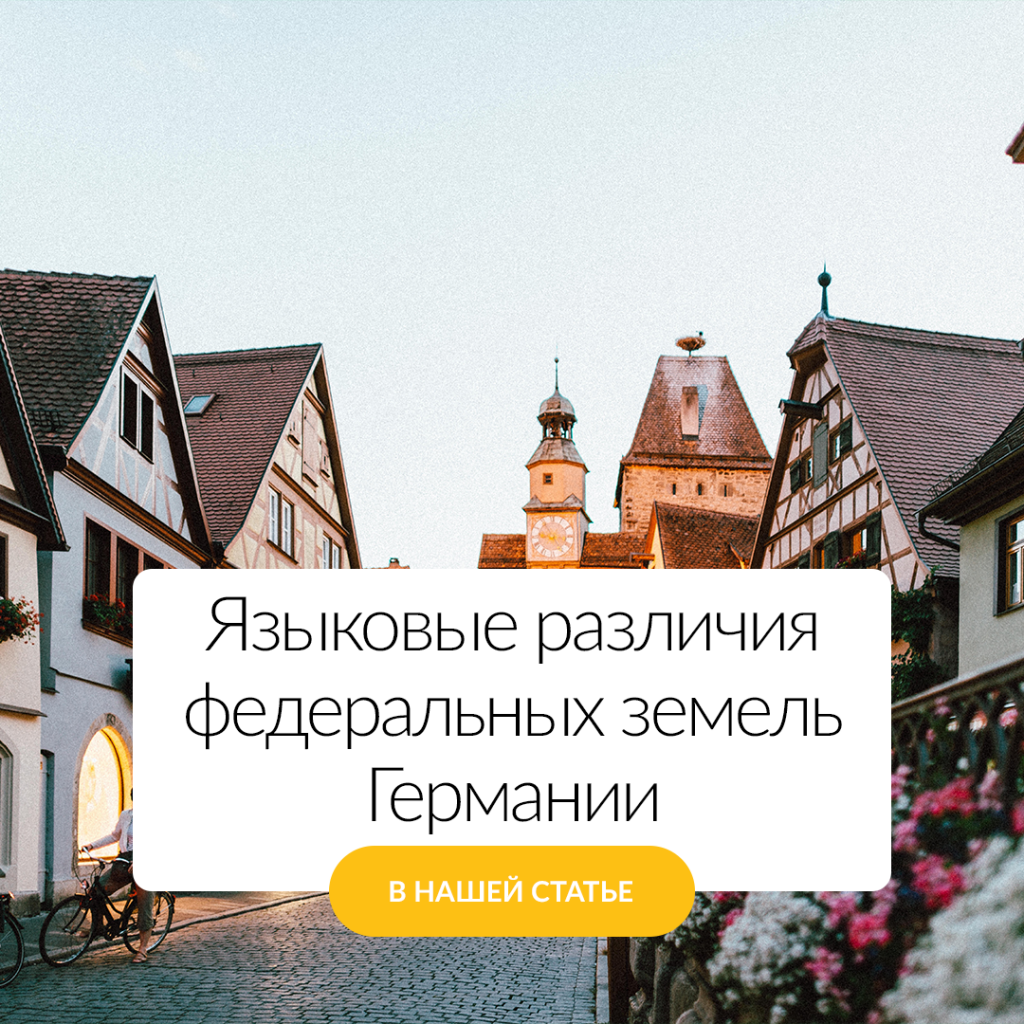Literary and colloquial GermanToday we will talk about language differences. The Germans distinguish between high literary German (Hochdeutsch) and colloquial German. We are learning literary German, it is the official language, and it exists both in written and oral forms. Spoken German is a language that is very different from earth to earth, it exists only verbally, creating many different variants of German. Germans from some regions often do not understand the colloquial expressions of Germans from other regions.
In order to confuse us, they also divide all dialects into two groups: Low German (Plattdeutsch) and High German, which is also called Hochdeutch (high German)!
In order to completely discourage you from any desire to understand this, they call the High Germans dialects common in the south of the country, that is, from the bottom of the map. And, accordingly, Low German in the north. Why is that? In the south there are mountains, so there is “high”.
Any German, according to how you speak, will determine what federal state you are from. It is not always easy for Germans to understand each other. It is much easier for a resident of St. Petersburg to understand a resident of Vladivostok, who lives 10,000 km away, than for a Berliner to understand a resident of Munich, who grew up 500 km away.
Bavaria and German Differences
Bavaria is very different from other lands. The Germans themselves say that Bavaria is not Germany, but Bavaria.
Bavaria has its own parliament, its own political parties. The Earth even has separatist sentiments. They are mostly Catholics, while the rest of Germany is inhabited by Protestants. The rest of the Germans they call Prusak and do not identify themselves with them either culturally or politically.
In the early stages of learning German, it is not worthwhile to go into particular details about the differences in dialects. But knowledge of regional differences will help impress the Germans.

